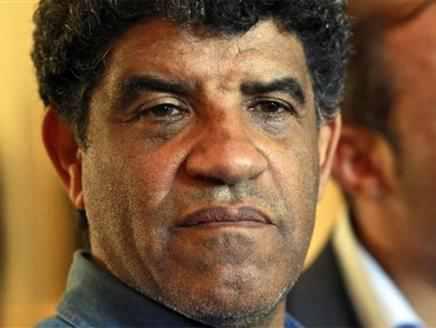
Tripoli, 7 February 2013:
The Libyan prosecutor-general’s office has described as “standard procedure” the ruling from the International Criminal Court that Abdullah . . .[restrict]Senussi, be handed over to it, to face charges of crimes against humanity.
Yet the ruling from the pre-trial chamber of the ICC in the Hague, made on Wednesday, but only published today, appears brutally clear. It read that the ICC “orders the Libyan authorities to proceed to the immediate surrender of Mr Senussi to the court.” It also said: “Libya remains under an obligation to comply with the surrender request.”
Taha Bara, a spokesman for the prosecutor-general, was reported by AFP to have described the court’s demand as “standard procedure”. He pointed out that Libya had filed a request on 23 January, that Senussi’s trial be held in Libya. “Therefore we have eight weeks from that date to complete the file and submit the necessary documentation”.
Bara also pointed out that even if the court refused to sanction a Libyan trial for Qaddafi’s brother-in-law and former intelligence chief, the decision could be appealed.
The British lawyer appointed by the ICC to defend Senussi, human rights campaigner Ben Emmerson QC, said after the ruling: “The ICC has ordered an immediate halt to Libya’s unseemly rush to drag Mr. Al-Senussi to the gallows before the law has taken its course.” The Hague judges also ordered Libya to give Emmerson access to his client, which has so far been denied.
Senussi was extradited from Mauritania last September in a deal which was widely rumoured to have involved the payment of $200 million by Libya. Ever since Senussi’s arrest on his return to Libya, the authorities here have insisted that he should face a Libyan court to answer charges of mass-killing and other gross violations of human rights.
Libya’s National Council for Public Liberties and Human Rights this evening said that it was its view that the country’s position on preventing the extradition of its citizens to the ICC is in accordance with the Libyan law.
If Libya is not successful in its appeal against the ICC’s ruling on Senussi, then the stage would seem to be set for a showdown between the ten-year old court and the Libyan government. If the former spy chief is not handed over, then the court can refer the matter to the UN Security Council.
If the UN body chooses to, and that it is a moot point whether agreement could be reached among permanent members with a veto, it has only two punitive measures open to it, according to London lawyer Robert Murtfeld, who is making a close study of the ICC. One would be sanctions and the other would be Chapter VII military intervention, neither of which seems in the least likely.
[/restrict]








